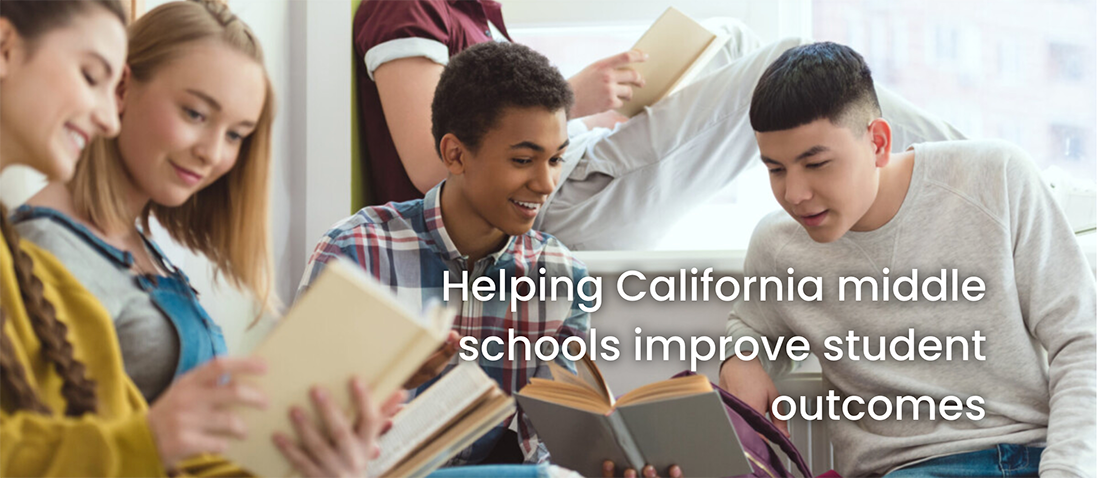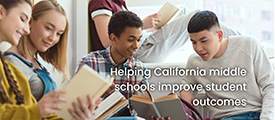Featured Literacy Strategies
The CALI Reads project features 7 research-based literacy practices proven to be effective for adolescent students across content area instruction. The project’s professional learning resources are designed to support educators in implementing these research-based practices. Resources include asynchronous e-Learning courses, training webinars, classroom demonstration videos, and the web-based WordBuilder Intervention tool.
By engaging with these learning resources, educators can gain a deeper understanding of effective literacy practices and how to apply them in their content area instruction. The asynchronous e-Learning courses and training webinars offer flexibility in terms of time and pacing, allowing educators to learn at their own convenience. The classroom demonstration videos provide real-world examples of these practices in action, offering practical insights and ideas for implementation. Additionally, the web-based WordBuilder Intervention tool can support individualized instruction and intervention for students needing targeted literacy support.
Indeed, the CALI Reads resources will prove to be an invaluable asset to anyone seeking to enhance educational opportunities for students. Whether you are an educator, administrator, or an individual passionate about promoting literacy and educational success, these resources provide a wealth of knowledge, strategies, and tools to support effective instruction.
Anticipation Reaction Guides
Anticipation Reaction Guides (AR Guides) are advanced organizers that are used before, during, and after reading. The teacher creates a set of opinion statements to activate student background knowledge before they read, to identify textual evidence related to the statements while they are reading, and to reconsider their opinions in the light of textual evidence after reading.
Get The Gist
Get the Gist is a part of the multi-component intervention Collaborative Strategic Reading (CSR), developed by Klingner and colleagues (1998). The CALI Reads training module focuses on the Get the Gist strategy within CSR. The Get the Gist Strategy teaches students a systematic process for creating a Gist statement for a text (or sections of a text) using the following 3 steps: 1) Name the who or the what; 2) Tell the most important thing about the who or what; and 3) Say it in about 10 words
Morphology
Morphology is the study of morphemes—the smallest units of meaning in our language. Morphemes can be prefixes, suffixes, or roots, and understanding them is crucial to becoming an independent and proficient reader and writer. Effective morphology instruction equips students with valuable tools for word analysis, decoding, spelling, and vocabulary acquisition.
Reciprocal Teaching
Reciprocal Teaching (RT) is a cooperative learning routine that incorporates four high leverage reading comprehension strategies: Predicting, Questioning, Clarifying, and Summarizing (Palinscar & Brown, 1984).
Self-Generated Questions
The Self-Generated Questions (SGQs) Strategy is an evidence-based routine that teaches students to monitor their reading comprehension by stopping intermittently to ask different kinds of questions about key information in the text, determine how the information is related, and use text evidence to support their responses.
Vocabulary Maps
The Vocabulary Map is a teacher-completed, graphic organizer used to preteach unfamiliar, conceptually important words prior to reading a text. Teachers can familiarize students with essential words using the Vocabulary Map in a quick five-minute lesson. On the Vocabulary Map, the teacher identifies a cognate for the word, student-friendly definition, visual representation, synonyms, use in context, and turn and talk prompts to engage students in oral language use.
Wordbuilder
The WordBuilder Intervention app a free application, is a research-based instructional tool to help adolescent struggling readers break down, build, and spell multisyllabic words. The app is designed for teacher-led, direct instruction delivered in small groups or one-on-one with struggling readers.


